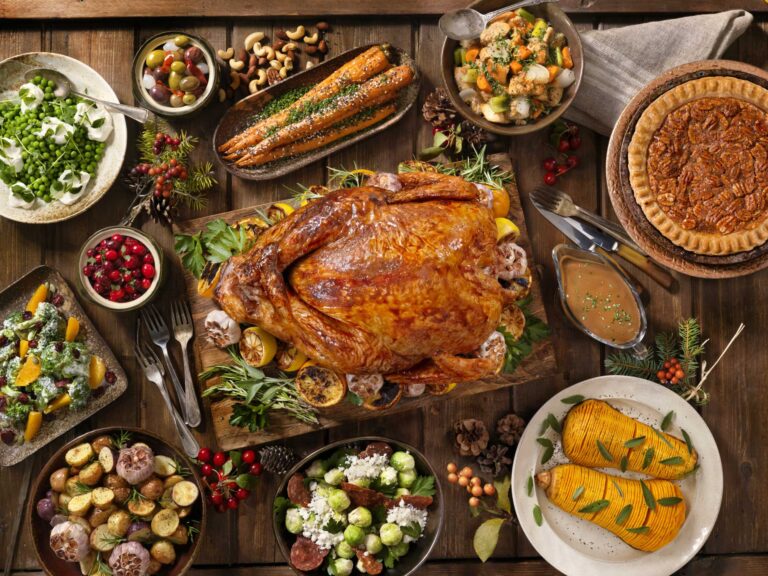As we age, it is of the utmost importance to dial in on your diet to ensure that you are supporting a healthy lifestyle. The risk of chronic conditions increases with age, and an unhealthy lifestyle further compounds the issues. In Louisiana, where rich cultural traditions play a significant role in dietary habits, ensuring proper nutrition for seniors can be a challenge. You must be deliberate in your choices and actions to prevent falling victim to an unhealthy lifestyle. This article explores senior nutrition in New Orleans, with an emphasis on obesity rates among older adults and practical tips for healthier eating.
Obesity Among Louisiana Seniors
The obesity crisis in the United States is a significant public health issue that continues to be a problem year after year. For decades, the statistics steadily increased, with the most recent percentage of obese seniors, age 65 and older, totaling 32.5%. Louisiana seniors are no different; in fact, the overall obesity rate for older adults in the Greater New Orleans area weighs in about 5% higher than the national average.
Carrying around the extra weight has a heavy cost. Obesity puts seniors at a greater risk for limited mobility and joint issues, among other physical limitations, which greatly impact their independence. Furthermore, chronic conditions like hypertension, cardiovascular disease, and diabetes are exacerbated by obesity.
Causes of Unhealthy Eating Habits
“Live to Eat” Mentality
Louisiana is widely known for its culinary scene. Dishes like jambalaya, gumbo, etouffee, and red beans and rice are local staples that are rich in both flavor and history. With the big taste comes an equally large calorie count and fat content. When consumed without caution, such hearty meals can become problematic and lead to poor overall health.
Economic Factors
With many seniors living on a fixed income, access to whole grains, lean proteins, and fresh fruits and vegetables may be limited. As a result, inexpensive, processed foods become the bulk of their diet, leading to poor nutrition and weight gain.
Limited Nutritional Knowledge
Many individuals lack a solid understanding of the specific dietary needs of aging seniors. The importance of maintaining muscle mass, consuming an adequate amount of fiber, and controlling portion sizes all become increasingly more important as you age. Failing to focus on these specific needs can lead to diminished muscle tone, fragile bones, and poor digestive health. These negative qualities contribute to a sedentary lifestyle and increase the chances of being obese.
Ways to Improve Your Dietary Habits
Focus on Balanced Meals
Build your meals around lean proteins, like fish or chicken to help build muscle mass. Adding complex carbohydrates assists with maintaining a healthy weight, blood sugar, energy levels, and brain function. A generous serving of fresh fruits and vegetables with your meals provides the proper nutrients and fiber to support your gut health and optimal performance.
Practice Portion Control
You can still enjoy some of your favorite Louisiana dishes in moderation. Portion control allows you to savor the flavor without sacrificing your health. Try using a smaller sized plate to help you control your portions. Begin by filling half of you plate with fruits and vegetables. This will automatically set you up for success by restricting the amount of room you have to indulge on the less healthy choices.
Don’t Drink Your Calories
Sugary drinks, like soft drinks and sweet tea, are filled with empty calories. Although they pair well with the local cuisine, they have a negative impact on your overall health. Choosing water, unsweet tea, or herbal tea can easily reduce your caloric intake and reduce sugar consumption. Save the sweet sips for special occasions, but do not make them your go-to drinks to accompany your daily meals.
Incorporate Physical Activity
Regular physical activity for seniors provides countless benefits for your overall well-being. It helps to strengthen your core, improving stability, enhancing mobility and flexibility, and reducing your fall risk, among other benefits. Additionally, it contributes to healthy weight management and overall well-being. Daily walks, gardening, water aerobics, yoga, and golf are all senior-friendly options to support regular physical activity.
Utilize Available Resources
There are many local resources available to seniors in New Orleans to assist with maintaining a healthy lifestyle. Nutrition education programs, cooking classes, exercise programs, and meal planning assistance are just a few of the resources available. Not only do these resources provide information to help seniors make healthier choices, but they also provide support from others who are looking to improve their overall health.












